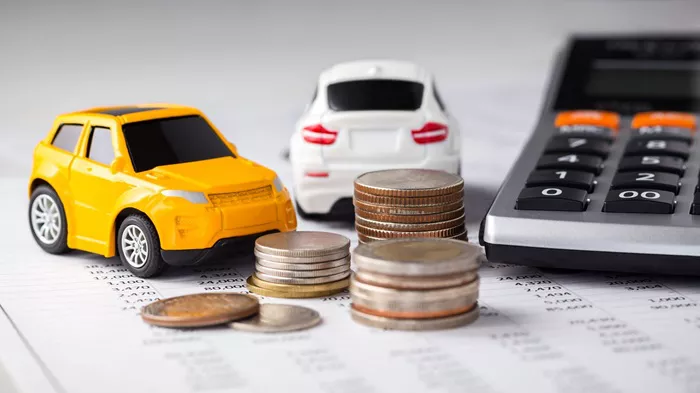When you buy or lease a campervan, it can feel like a dream come true. You’re ready for road trips, weekend escapes, or even full-time van life. But accidents and theft can happen. And if your campervan gets totaled or stolen, regular insurance might not be enough. That’s where campervan gap insurance comes in. But what is it? And do you really need campervan gap insurance? This article will explain everything in simple words so you can make the right decision.
What Is Campervan Gap Insurance?
Campervan gap insurance is a special type of insurance that helps cover the difference between what your campervan is worth and what you still owe on it. It’s called “gap” insurance because it fills the financial “gap” between your standard insurance payout and your remaining loan or lease balance.
Let’s say you bought a campervan for $60,000 and financed it with a loan. After a year, you still owe $50,000 on the loan. But the value of your campervan has gone down. It’s now worth only $42,000. If your campervan is stolen or written off in an accident, your standard insurance will likely pay only the market value—$42,000 in this case. That leaves you with an $8,000 gap. Without gap insurance, you would have to pay that $8,000 out of your own pocket. Gap insurance covers that shortfall.
This kind of protection can be very useful, especially when you’re financing a campervan or leasing it.
Why Is Gap Insurance Important for Campervans?
Campervans can be expensive. Many people finance their purchase over several years. But vehicles lose value quickly. In the first year alone, a new campervan can lose up to 20% of its value. This is called depreciation. The more your campervan depreciates, the bigger the gap between its value and what you owe. That’s why gap insurance is so helpful.
Here are a few reasons why gap insurance is especially important for campervans:
1. High Depreciation Rates
Campervans, like most vehicles, lose value fast. The moment you drive it off the lot, its resale value drops. Over time, even if the campervan is in good condition, the market value continues to fall. If something happens to it during this time, your regular insurance won’t pay enough to cover your loan balance. Gap insurance makes up the difference.
2. Long-Term Loans
Many people take out long-term loans to buy campervans. Some loan terms can last five to seven years. During the early years of the loan, most of your payments go toward interest rather than reducing the main loan amount. This means your loan balance may still be high while your campervan’s value is going down. Gap insurance protects you from paying out of pocket if the vehicle is totaled during this period.
3. Expensive Upgrades
Many campervan owners invest in upgrades, like solar panels, better insulation, or kitchen equipment. Standard insurance policies don’t always cover these extras fully. Even if your insurer agrees to include them, they might not pay what you paid to install them. Gap insurance doesn’t cover the upgrades themselves, but it does help protect you from the financial loss if the total value of the campervan (including upgrades) isn’t fully paid back by the insurance.
4. Theft Risk
Campervans are often attractive to thieves. They’re mobile, valuable, and often left parked in different locations during trips. If your campervan is stolen and not recovered, your regular insurance will only pay the current market value. If you owe more than that, you’ll still be responsible for the rest. Gap insurance ensures you won’t be left with that unpaid balance.
Who Should Consider Campervan Gap Insurance?
Not everyone needs campervan gap insurance. But it’s a smart choice in many situations. You should consider it if:
You financed or leased your campervan.
You put down a small deposit or no deposit at all.
You plan to take a long-term loan (over 4 years).
You bought a new or nearly new campervan.
You expect to use the campervan frequently, leading to faster wear and tear.
You’re worried about high depreciation.
You want peace of mind while traveling.
If you bought your campervan outright and don’t owe anything on it, you probably don’t need gap insurance. If your campervan is older or has already depreciated heavily, the need for gap insurance is also less important. But if your vehicle is new and financed, gap insurance is a smart protection to have.
How Does Campervan Gap Insurance Work?
Gap insurance is simple. If your campervan is stolen or declared a total loss after an accident, your regular insurance will pay the market value of the vehicle. Then, gap insurance pays the difference between that payout and the amount you still owe on your loan or lease.
Here’s a real-life example:
You buy a campervan for $55,000 and take out a loan. One year later, you still owe $48,000. Unfortunately, your campervan gets totaled in an accident. Your regular insurance pays the current value of the van, which is $40,000. That means there’s an $8,000 gap between what your insurance paid and what you still owe. Without gap insurance, you would need to pay that $8,000 yourself. With gap insurance, that amount is covered.
It’s important to note that gap insurance doesn’t cover things like overdue loan payments, late fees, or the cost of your next campervan. It only covers the shortfall between your insurance payout and the remaining loan or lease amount.
Where Can You Get Campervan Gap Insurance?
You can get gap insurance from different sources:
1. Dealerships
When you buy or lease a campervan from a dealer, they will often offer you gap insurance. This can be convenient, but it is often more expensive than other options. Always compare prices before saying yes.
2. Banks or Lenders
Some lenders offer gap insurance as part of your loan agreement. This can also be more costly, and it might be added to your monthly loan payments. Make sure you understand the terms and total cost before agreeing.
3. Independent Insurance Providers
There are many companies that specialize in gap insurance. These providers often offer better rates than dealerships or banks. You can shop around online and compare policies. Just make sure the provider is reputable and licensed.
4. Your Regular Auto Insurance Company
Some standard car insurers also offer gap coverage as an add-on. If you already have campervan insurance, ask your provider if they offer gap insurance too. This could make managing your policies easier.
What Does Campervan Gap Insurance Not Cover?
Gap insurance is helpful, but it doesn’t cover everything. Knowing the limits will help you avoid surprises later. Here are some things gap insurance does not cover:
Repairs or damage not resulting in a total loss.
Overdue loan payments or late fees.
Interest added after your campervan was totaled.
New vehicle replacement costs.
Value of non-standard features or custom upgrades (unless specifically included).
Down payments for your next vehicle.
Personal belongings inside the campervan.
Always read the policy details before buying gap insurance so you know exactly what is and isn’t included.
How Much Does Campervan Gap Insurance Cost?
The cost of campervan gap insurance depends on a few factors, such as the value of your campervan, the length of your loan or lease, and where you buy the policy. On average, you might pay:
$300 to $700 for a one-time policy.
$15 to $35 per month if it’s added to your loan or lease.
More if your campervan is high-end or custom-built.
While gap insurance is an extra cost, it could save you thousands in the long run. If your campervan is written off, you’ll be glad you made the investment.
How Long Do You Need Campervan Gap Insurance?
You don’t need gap insurance forever. Most people only need it for the first few years after buying a new or expensive campervan. Once the vehicle’s market value is close to or more than your loan balance, the gap disappears. At that point, gap insurance is no longer necessary.
Many gap insurance policies last for up to 5 years. Some may end automatically when your loan is paid off. You can also cancel your policy early if your loan balance falls below the campervan’s value. Just contact your provider to make changes.
Conclusion
Campervan gap insurance might sound like just another expense, but for many people, it’s a smart move. If you’ve just bought or leased a campervan and owe more than the vehicle is worth, this coverage can save you from financial stress if the worst happens.
It’s especially useful for anyone with a new campervan, a long loan, or a small down payment. It’s not always necessary, but when it is, it can make a big difference. Instead of facing a big loan balance after an accident or theft, you can walk away without debt.
Before buying, compare prices and read the policy details carefully. Don’t automatically accept the dealership’s offer. Look at third-party insurers too. In the end, campervan gap insurance gives you peace of mind—and that’s something every campervan owner should have.
Related topic:
How Much Does Commercial RV Insurance Really Cost?



















